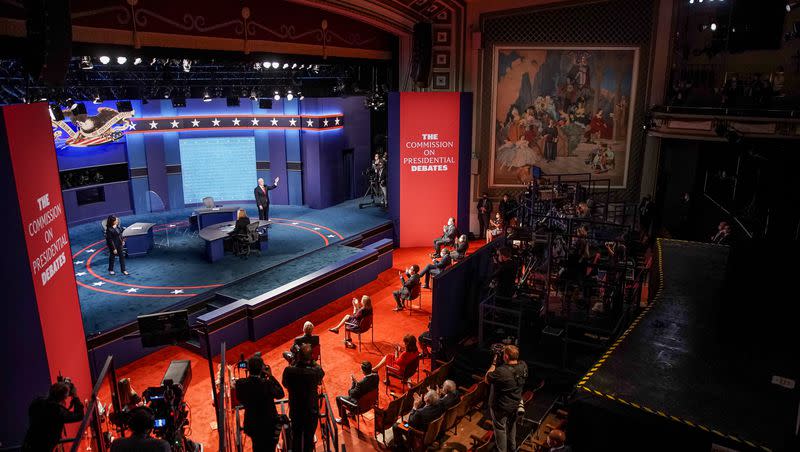Presidential debate coming to Utah

The University of Utah will host the third and final presidential debate prior to the 2024 general election, the Commission on Presidential Debates announced Monday.
The debate will take place at Kingsbury Hall on Oct. 9, 2024 — almost exactly four years after the campus hosted a vice presidential debate between Mike Pence and Kamala Harris. The event will follow debates at Texas State University and Virginia State University.
“It will be an honor and a privilege to welcome the presidential candidates to (Salt Lake City) for a debate about the most important issues affecting our country,” Salt Lake City Mayor Erin Mendenhall said Monday in a post on X. “We have a proven track record for hosting events on a global scale. We’ll be ready again to provide a welcoming environment for the candidates, the audience, and viewers worldwide.”
Participants must receive at least 15% in five different polls to be eligible, according to the Commission on Presidential Debates, a nonprofit organization that has hosted all general election presidential debates since 1988.
However, unlike past elections, there is no guarantee that the Republican presidential nominee will attend.
In 2022, the Republican National Committee voted unanimously to sever ties with the Commission on Presidential Debates, stating that Republican presidential candidates would no longer participate in the commission’s events because of alleged bias in the way it treated Republican candidates.
“Free and fair” alternatives to the commission’s official debates would be provided, the Republican National Committee said at the time.

